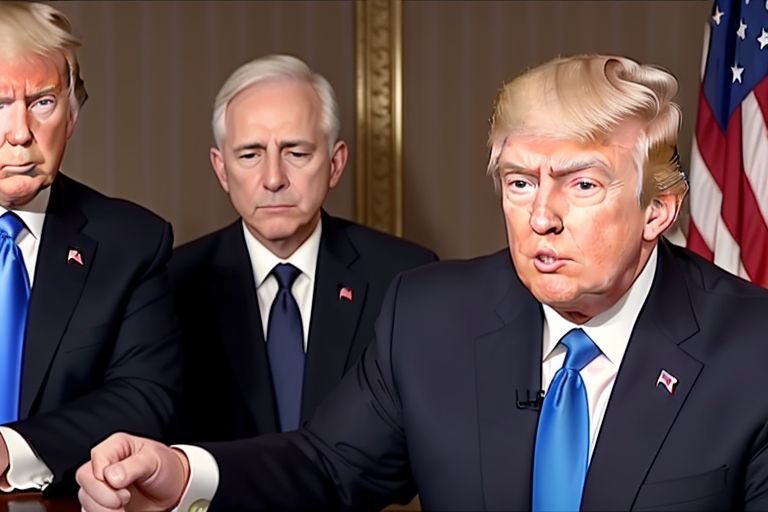
Trump Defends Tariff Plans In Chicago Economic Club Interview
President Trump yelled for quite an Instagram captions about his rather robust vision of the economy where he proposed massive tariff on imports in a heated interview on Tuesday at the Economic Club of Chicago. Co-organized by Bloomberg News, the event put Trump on the hot seat, asking him about possible outcomes of his economic policies once he is elected president in 2024.
Trump, known for his protectionist stance on trade, doubled down on his support for tariffs, calling them “the most beautiful word in the dictionary” and his “favorite word.” It spoke of placing tariffs of up to 100 percent on some imports because Trump insisted that such measures would create manufacturing jobs in the United States to benefit the middle class. But when Bloomberg Editor-in-Chief John Micklethwait, who chaired the discussion, pointed out the risk of a large-scale trade war and that President Trump’s policies threaten the continued working of American businesses that depend on international business.
The former president dismissed these worries, insisting that his tariff policies would have a “massive effect – a positive effect” on the U.S. economy. He said that higher tariffs would encourage firms to set up factories in the United States so as not to be stung by import duties. Trump’s stance on tariffs aligns with his broader “America First” economic philosophy, which he championed during his first term in office.
While discussing tariffs, Trump has been met with disapproval from critics and economic pundits who say that his proposed tariffs are likely to result in prices being raised for ordinary consumers from America and would likely cause a deterioration of relations with important allies. As Micklethwait noted, it will make no sense to use allies and set a tariff of 20-30% because this may splinter the West when unity is required, given the current geopolitical climate.
Trump also spoke concerning the efficiency of his plan of immigration crackdown on the economy. When asked the possibility of policies making jobs with foreign workers redundant, he did not waver in supporting how his policies will help the American workers.
The presidency of the former president has been criticized by everyone, and the most criticized aspect is his/her economic plans. An official at the Committee for a Responsible Federal Budget recently said that America’s economic policy under Trump could affect up to $15 trillion over the next ten years. Further, economists at the Peterson Institute for International Economics have estimated that if the Trump policies materialize, then the US GDP would still be much lower than the forecasts, with the possible outcome of less output and spending.
Nevertheless, criticism has been made of Trump, and again, Trump defended himself by saying that he is good at counting and economics. He shrugged off comments pertaining to the nationally accumulating debts, which are already exceeding $36 trillion, by noting his new concentration in economic development. President Trump said that a package of tax cuts along with tariffs would be enough to compensate for the costs of implementation of his policies.
The event in Chicago revealed an even sharper contrast between Trump’s economic plan and that of political rivals. Although Trump insist on protective barrier and hefty tax reforms, his opponents claim the methodology can only contribute to poor income disparity and long term negative economic effect.
Trump’s economic plans are going to be among the main topics of discussion as the campaigns for the 2024 presidential election gather steam. His participation in the Economic Club of Chicago shows that the Midwest will be crucial in the following election given that economic issues will dominate the campaigning periods in the swing states.
In the event, Trump also discussed other issues such as elements of foreign policy and the U.S. economy under Biden presidency. As much as the campaign season progresses, we can see that the candidates will continue to focus on issues to do with economic policy and how they are going to shape it.


